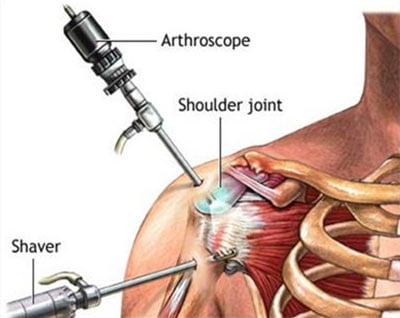Any type of shoulder pain disrupts your routine. A shoulder impingement can mean that you have a muscle strain, a pinched nerve or a torn rotator cuff. Don’t let it get worse. Look for chronic pain management doctors near you for medical attention. Your injury doctor conducts shoulder impingement tests to reach a diagnosis and recommend effective treatment. You’re in good hands at New York City Pain Management. Call today for an appointment.
A shoulder impingement is one of the leading causes of shoulder pain and physical discomfort. All the bones, cartilage, ligaments, tendons and other soft tissues in your shoulder must work together seamlessly to provide you the strength, functionality, and range of motion you need to do even simple tasks.
Since your shoulder is the most open joint of your body, providing more movements than your other joints, it’s especially vulnerable to painful problems. Shoulder pain can occur as the result of an injury, irritation, abnormal bone growth or a medical condition like bursitis or tendonitis. Visit our pain clinic New York for effective remedies for your pain.
Anatomy of Your Shoulder
Your shoulder is composed of three major bones. A minor bone, the acromion, sits on top of each shoulder at the junction of the other three bones:
- Humerus, your upper arm bone
- Scapula, your shoulder blade
- Clavicle, your collar bone

For you to move your shoulder freely and without discomfort, small lubricating sacs called bursae protect the joint at points of possible friction. For example, you have bursae between the bone on top of your shoulder and your rotator cuff. Due to constant movement, your rotator cuff is a common source of trouble. It can even tear.
Rotator Cuff Issues
Your rotator cuff is the group of muscles and ligaments that holds your bones together and enables you to move your shoulder fully. The rotator cuff forms a strong bond and protective cover that anchors your arm securely into your shoulder socket. But your shoulder joint is so open that all of its parts, including the rotator cuff, are susceptible to injury.
When you raise your arms to the height of your shoulders, the space between your rotator cuff and your acromion gets significantly smaller. In some cases, this can cause your acromion to rub directly against your tendon and its bursa. This can be extremely painful and cause a great deal of irritation. Additionally, your rotator cuff naturally breaks down as a result of overuse and your body’s aging process.
Cause and Effect
A shoulder injury can happen to you at any age. While age and activity increase your chances of developing shoulder impingement, everyone has some degree of risk for this condition. Injury can strike without warning. It’s also possible that the pain of a shoulder impingement develops without any obvious cause.
You may notice tenderness and swelling in the front of your shoulder. Or you may experience stiffness and pain when lifting or lowering your arm. Other possible symptoms include:
- Pain that seems to radiate through your shoulder and arm
- Sharp pain when you reach or lift
- Pain that’s present with both activity and rest
There are also signs that indicate your condition is worsening:
- You feel a significant loss of arm and shoulder strength.
- You notice a decrease in your range of motion.
- You have trouble with small activities, like doing up buttons or zippers.
Shoulder Impingement Tests
Working with the top pain management doctors in New York increases your chances for an accurate diagnosis and full recovery from your shoulder woes. The injury clinic at Pain Management NYC has the latest imaging equipment and practical medical experience to accurately determine what’s going on in your shoulder and how best to resolve it.
Your chronic pain doctor follows a thorough physical exam with a detailed discussion of your medical history. If necessary, you undergo imaging tests for your shoulder impingement. The best shoulder pain relief doctors at Pain Management NYC then make their diagnosis. Once they find the source of your pain, the options for treating your shoulder impingement become clearer.
Moving Past Your Pain
Shoulder impingement treatment varies, depending on the severity of your condition. Minor cases and early discovery cases are the easiest to treat, so don’t delay if you hurt your shoulder. Shoulder impingement recovery time is directly related to the specific treatment you receive. Common treatments include:
- Minor cases can be resolved with rest and pain management, including oral medication.
- Shoulder injections that include corticosteroids are beneficial for an impingement that’s more severe.
- If your case is extreme, a top NYC pain specialist employs minimally invasive surgical techniques to provide more room in your shoulder for your rotator cuff to move.
Shoulder impingement treatment with physical therapy is a powerful combination. It provides pain relief while you work to physically loosen your shoulder through targeted exercises and stretches. A physical therapy regimen aims to restore your normal range and function. It also ensures the most complete recovery possible. Leave the pain behind by contacting Pain Management NYC.

Boleslav Kosharskyy, MD, is a top-rated, best-in-class interventional pain management doctor. He is board-certified in Anesthesiology, Interventional Pain Medicine, and Palliative Care.
Dr. Kosharskyy is an Associate Professor of Anesthesiology and Rehabilitation Medicine at Albert Einstein Medical College. He’s also the Associate Medical Director of Pain Medicine and Director of Anesthesia for the Joint Replacement Center at Montefiore Medical Center and Albert Einstein Medical College.
He is an active member of the American Society of Anesthesiology (ASA), the American Society of Regional Anesthesia and Pain Medicine (ASRA), and the New York State Society of Anesthesiologists (NYSSA)
